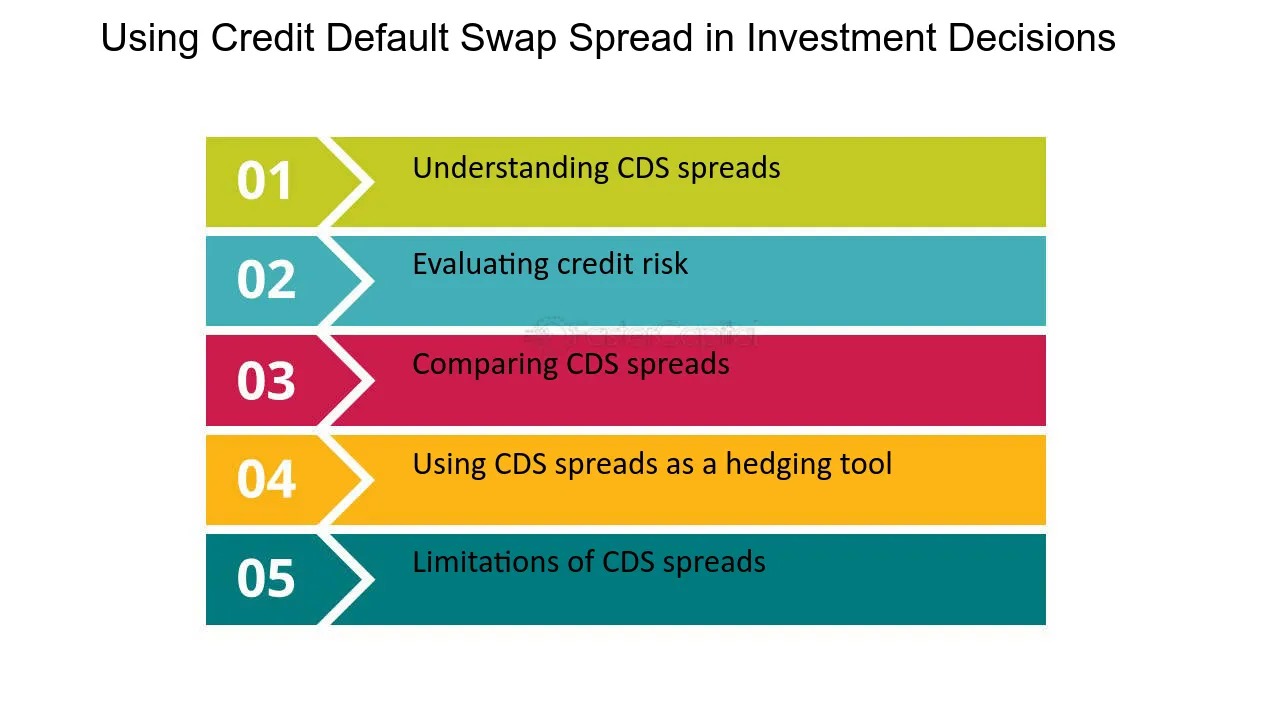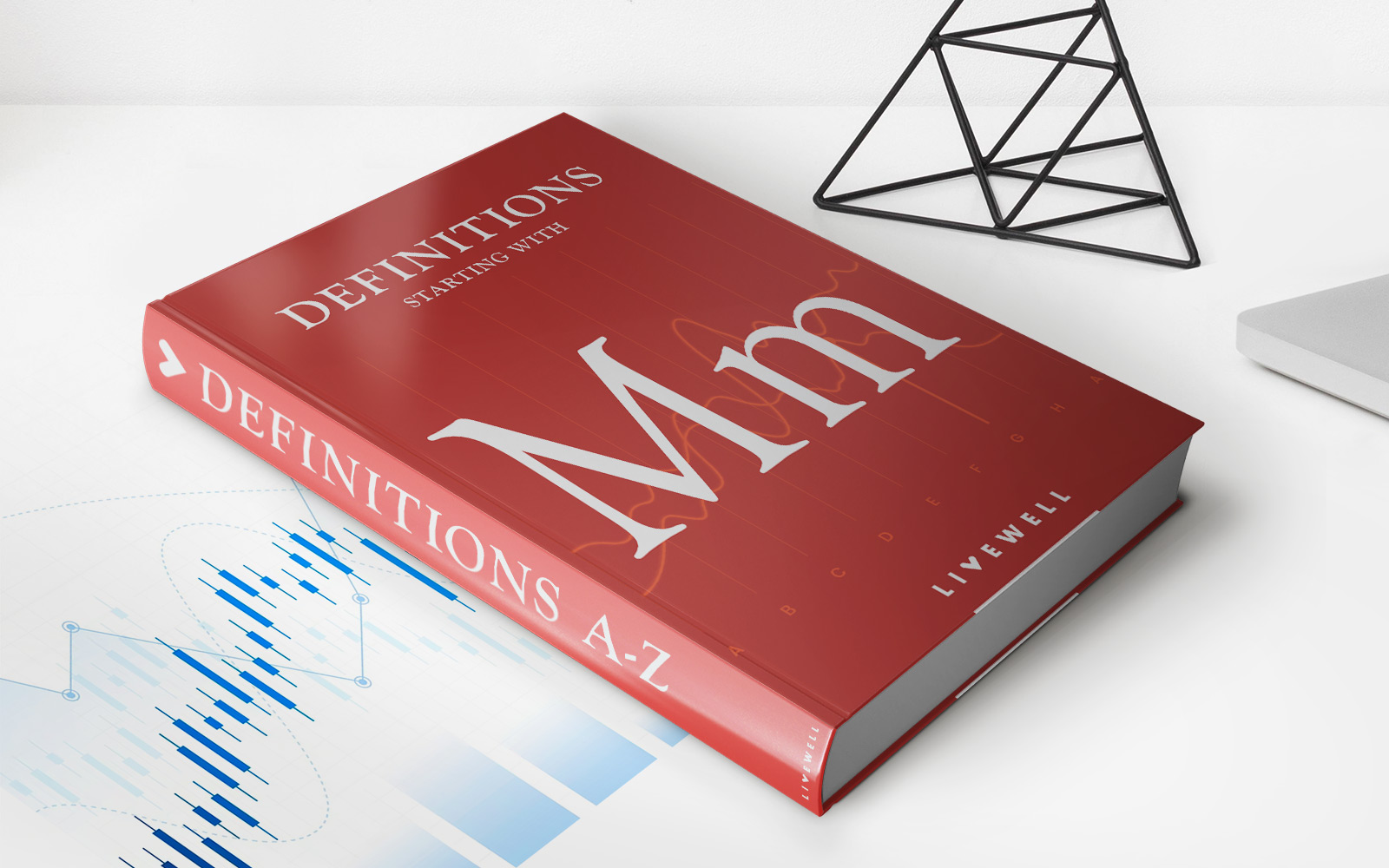

Finance
What Is Credit Life Insurance On A Mortgage
Published: January 4, 2024
Discover what credit life insurance is on a mortgage and how it can impact your finances. Protect your investment and secure your future with this valuable insurance option.
(Many of the links in this article redirect to a specific reviewed product. Your purchase of these products through affiliate links helps to generate commission for LiveWell, at no extra cost. Learn more)
Table of Contents
- Introduction
- What is Credit Life Insurance?
- Understanding Mortgage Insurance
- Benefits of Credit Life Insurance on a Mortgage
- Drawbacks of Credit Life Insurance on a Mortgage
- How Does Credit Life Insurance Work?
- Is Credit Life Insurance Necessary?
- How to Obtain Credit Life Insurance on a Mortgage
- Comparing Credit Life Insurance Providers
- Frequently Asked Questions about Credit Life Insurance on a Mortgage
- Conclusion
Introduction
When it comes to taking on a mortgage, it’s important to consider all the potential risks and vulnerabilities that may arise along the way. One such risk is the possibility of unexpected circumstances such as sudden disability, illness, or even death. These events can have a significant impact on your ability to repay your mortgage, leaving your loved ones facing financial hardship.
Fortunately, there is a financial safety net that can offer you and your family peace of mind: credit life insurance. This type of insurance is specifically designed to protect borrowers and their families in the event of unforeseen circumstances.
In this article, we will delve into what credit life insurance is, how it works, and whether it is necessary for mortgage borrowers. We will also explore the benefits and drawbacks of credit life insurance, as well as provide tips on how to obtain it and compare providers. By the end, you’ll have a comprehensive understanding of credit life insurance and how it can safeguard your mortgage commitments.
What is Credit Life Insurance?
Credit life insurance is a type of insurance that offers protection to borrowers and their families by paying off the outstanding balance of a loan or mortgage in the event of the borrower’s death, disability, or certain critical illnesses. It serves as a financial safety net, ensuring that the mortgage is taken care of and relieving the burden from the borrower’s loved ones during difficult times.
Unlike other forms of life insurance, credit life insurance is specifically tied to a particular loan or mortgage. It is typically offered by lenders as an optional add-on to a loan or mortgage agreement. If the borrower elects to purchase credit life insurance, the premium is added to the monthly loan payment.
The coverage amount of credit life insurance is usually equal to the outstanding balance of the loan or mortgage. For example, if you have a mortgage with an outstanding balance of $200,000, the credit life insurance policy will provide a death benefit of $200,000 to pay off the mortgage if the insured borrower dies.
It is important to note that credit life insurance is different from private mortgage insurance (PMI), which protects the lender in case the borrower defaults on their mortgage payments. Credit life insurance, on the other hand, protects the borrower and their family in case of unforeseen circumstances.
Credit life insurance is a form of term life insurance, which means it covers the borrower for a specific period of time or until the loan or mortgage is fully paid off. If the borrower reaches the end of the loan term and has paid off the mortgage, the credit life insurance coverage will also end.
Overall, credit life insurance provides valuable protection to mortgage borrowers and their families, ensuring that they don’t inherit the burden of outstanding mortgage debt in the face of tragic events. It offers peace of mind and financial security during uncertain times.
Understanding Mortgage Insurance
When it comes to mortgages, it’s important to understand the concept of mortgage insurance, as it may be a requirement depending on your loan terms and situation. Mortgage insurance, also known as mortgage protection insurance or MPI, is a type of insurance that protects the lender in case the borrower defaults on their mortgage payments.
Mortgage insurance serves as a safeguard for lenders by providing them with financial compensation if the borrower fails to make their monthly mortgage payments. This compensation helps protect lenders from potential losses due to borrower defaults, reducing their risk and allowing them to offer mortgages to borrowers with lower down payments or less-than-ideal credit scores.
There are different types of mortgage insurance, and the specific type required for your mortgage will depend on various factors, such as the loan-to-value ratio (LTV) and the type of loan you have:
- Private Mortgage Insurance (PMI): PMI is the most common type of mortgage insurance and is typically required for conventional loans with a down payment of less than 20%. PMI premiums are added to the monthly mortgage payment and can be removed once the borrower has accumulated enough equity in the property or reaches a certain loan-to-value threshold.
- Federal Housing Administration (FHA) Mortgage Insurance: FHA loans are insured by the Federal Housing Administration, and borrowers are required to pay an upfront mortgage insurance premium (UFMIP) at the time of closing, as well as annual mortgage insurance premiums (MIP) throughout the life of the loan. FHA mortgage insurance allows borrowers to qualify for loans with lower down payments and more lenient credit requirements.
- Veterans Affairs (VA) Funding Fee: VA loans, available to eligible veterans and service members, do not require private mortgage insurance. Instead, borrowers are required to pay a funding fee, which acts as a form of insurance to protect the lender in case of default. The funding fee can be paid upfront or rolled into the loan amount.
- USDA Mortgage Insurance: The United States Department of Agriculture (USDA) offers home loans through the Rural Development Guaranteed Housing Loan Program, which allows borrowers in eligible rural areas to obtain affordable housing. USDA loans require upfront and annual mortgage insurance premiums.
It’s important to note that mortgage insurance is different from credit life insurance. While mortgage insurance protects the lender, credit life insurance protects the borrower and their family in the event of death, disability, or critical illness.
Understanding the different types of insurance associated with mortgages is crucial for borrowers. It allows them to make informed decisions regarding their financial protection and helps ensure they have the necessary coverage in place to safeguard their homes and loved ones.
Benefits of Credit Life Insurance on a Mortgage
Credit life insurance offers several benefits to mortgage borrowers and their families, providing valuable financial protection and peace of mind. Here are some of the key advantages of having credit life insurance on a mortgage:
- Debt Payoff in the Event of Death: The primary benefit of credit life insurance is that it pays off the outstanding balance of the mortgage in the event of the insured borrower’s death. This ensures that the borrower’s loved ones are not burdened with the responsibility of the mortgage payments during a difficult time. The death benefit from the insurance policy can give the family the financial stability to maintain the property or even pay it off entirely.
- Protection Against Disability: Credit life insurance not only covers death but can also provide coverage for disability. If the insured borrower becomes disabled and is unable to work and make mortgage payments, the insurance policy can kick in and cover the monthly mortgage payments until the borrower is able to return to work or until the mortgage is fully paid off, depending on the terms of the policy. This protection can help prevent the risk of foreclosure and ensure the continuity of homeownership.
- Peace of Mind: Having credit life insurance on a mortgage gives borrowers and their families peace of mind. It provides assurance that in the event of unforeseen circumstances, such as death or disability, the mortgage will be taken care of. This peace of mind allows borrowers to focus on other aspects of their lives without worrying about the financial implications that may arise from mortgage obligations.
- Flexible Options: Credit life insurance policies often offer flexible options to borrowers. You can typically choose the coverage amount to be equal to the outstanding mortgage balance or opt for additional coverage to provide additional funds for your family’s needs. Some policies may also offer optional riders or benefits that can be customized to the borrower’s specific needs, providing further financial protection.
- Simplicity and Accessibility: Obtaining credit life insurance on a mortgage is usually a straightforward process. It is often included as an option when you apply for a mortgage, and the premiums can be conveniently added to your monthly mortgage payment. This accessibility makes it easy for borrowers to secure the necessary insurance coverage without having to navigate separate application processes and payments.
Overall, credit life insurance on a mortgage offers peace of mind and financial protection to borrowers and their families. It ensures that their mortgage obligations are taken care of in the event of death or disability, allowing them to focus on their well-being and maintaining homeownership even during challenging circumstances.
Drawbacks of Credit Life Insurance on a Mortgage
While credit life insurance offers important benefits, it is essential to consider the drawbacks before deciding whether to obtain it on your mortgage. Here are some potential drawbacks to be aware of:
- Cost: One of the main drawbacks of credit life insurance is the cost. The premiums for credit life insurance can be higher compared to traditional life insurance policies. The premiums are typically added to the monthly mortgage payment, increasing the overall cost of homeownership. It is important to carefully consider the affordability of these premiums in relation to your overall budget.
- Limited Coverage: Credit life insurance is designed to cover the outstanding balance of the mortgage. This means that as you make mortgage payments and reduce the mortgage balance, the coverage amount decreases over time. Therefore, the coverage is not as comprehensive as a traditional life insurance policy, which typically provides a fixed death benefit regardless of the outstanding loan balance.
- No Beneficiary Choice: With credit life insurance, the mortgage lender typically becomes the beneficiary of the policy. This means that you have limited control over who receives the insurance proceeds upon your death. If you have specific beneficiaries in mind or want to maintain flexibility in deciding how the insurance benefits are used, you may find the lack of beneficiary choice as a drawback.
- Binding to a Specific Mortgage: Credit life insurance is tied to a specific mortgage, which means that if you refinance or sell your property, the policy may no longer be applicable. You may need to cancel the existing policy and obtain a new one for the new mortgage. This can be an inconvenience and may involve additional costs and paperwork.
- Health Considerations: Credit life insurance policies often have simplified underwriting processes, meaning they may not require a medical examination or detailed health history. While this can make obtaining coverage easier, it may also result in higher premiums for individuals who are younger and in good health. If you are in good health and have other life insurance options, it might be more cost-effective to explore alternative policies.
It’s important to carefully weigh the benefits and drawbacks of credit life insurance on your mortgage to determine if it aligns with your financial goals and circumstances. Consider your overall financial situation, risk tolerance, and the potential costs versus the benefits of having this type of insurance coverage.
How Does Credit Life Insurance Work?
Credit life insurance is designed to provide financial protection for mortgage borrowers and their families in the event of death or disability. Here’s how credit life insurance typically works:
- Purchasing the Policy: When applying for a mortgage, the lender may offer credit life insurance as an option. If you choose to purchase it, the premium for the credit life insurance policy is typically added to your monthly mortgage payment. It’s important to carefully read and understand the terms and conditions of the policy, including the coverage amount, exclusions, and any optional riders or benefits.
- Policy Coverage: The credit life insurance policy provides coverage for a specific term, typically matching the length of your mortgage. The coverage amount is generally equal to the outstanding balance of the mortgage loan. In the event of the insured borrower’s death or disability, the policy will pay off the outstanding mortgage balance, ensuring that the survivor(s) or the borrower’s family is not burdened with the mortgage payments.
- Death Benefit: In the unfortunate event of the insured borrower’s death, the insurance company will pay the death benefit directly to the mortgage lender to cover the outstanding mortgage balance. The mortgage will be considered paid in full, relieving the borrower’s family of the mortgage obligation. This allows them to remain in the home without the financial burden of continuing mortgage payments.
- Disability Coverage: If the insured borrower becomes disabled and is unable to work and make mortgage payments, the credit life insurance policy can provide coverage for the monthly mortgage payments while the disability persists. The policy will typically have specific criteria and waiting periods for disability coverage to take effect. The coverage will continue until the borrower recovers and resumes work or until the mortgage is fully paid off.
- Premium Payment: The premium for credit life insurance is typically added to the monthly mortgage payment. The exact premium amount will depend on factors such as the outstanding mortgage balance, age, and health of the borrower. The premium is paid for the duration of the policy, usually until the mortgage is fully paid off or the coverage term ends.
- Claim Process: In the event of a claim, such as the death or disability of the insured borrower, the beneficiary or family member needs to notify the insurance company. The insurance company will provide instructions on the required documents and information for processing the claim. Once the claim is verified, the insurance company will coordinate with the mortgage lender to pay off the outstanding mortgage balance.
It’s important to review and understand the terms of the credit life insurance policy when purchasing it. Take note of any exclusions or limitations, such as suicide clauses or pre-existing condition exclusions. It’s also advisable to periodically review your coverage needs and make adjustments as necessary to ensure your credit life insurance adequately protects your mortgage obligations.
Is Credit Life Insurance Necessary?
Whether credit life insurance is necessary for your mortgage depends on your individual circumstances and priorities. While it offers valuable protection and peace of mind, it may not be a crucial requirement for everyone. Here are some factors to consider when evaluating the necessity of credit life insurance on your mortgage:
- Financial Situation: Consider your current financial situation and the potential impact of mortgage payments on your family members in the event of your death or disability. If you have significant assets or other life insurance coverage that could cover the outstanding mortgage balance, credit life insurance may not be as necessary.
- Existing Insurance Coverage: Review your existing life insurance policies to determine if they provide adequate coverage for your mortgage. If you already have a sufficient life insurance policy that would cover your mortgage in the event of your death, credit life insurance may not be necessary.
- Health and Age: Evaluate your health and age to determine if you are likely to face insurability issues or higher premiums for credit life insurance. If you are in good health and have access to other life insurance options, it’s worth comparing the costs and benefits of credit life insurance against individual life insurance policies.
- Risk Tolerance: Assess your risk tolerance and willingness to assume the potential financial burden of the mortgage in the event of unexpected circumstances. If you are comfortable with the possibility of your family having to take on the mortgage payments, credit life insurance may not be necessary.
- Property Equity: Consider the amount of equity you have in your property. If you have significant equity built up and the mortgage balance is relatively low, the financial impact on your family in the event of your death or disability may be less significant.
- Family and Dependents: Evaluate the needs and responsibilities of your family members or dependents. If you have individuals who rely on your income to cover the mortgage payments, credit life insurance can provide an extra layer of financial protection and ensure their continued stability.
Ultimately, the decision to obtain credit life insurance on your mortgage is a personal one that should be based on careful consideration of your financial situation and priorities. It’s important to weigh the costs and benefits and assess your specific needs to determine if credit life insurance is necessary or if alternative insurance options can provide sufficient coverage.
How to Obtain Credit Life Insurance on a Mortgage
Obtaining credit life insurance on a mortgage is a relatively straightforward process. Here are the general steps to follow:
- Research and Compare Providers: Start by researching and comparing different insurance providers that offer credit life insurance. Look for reputable insurance companies that specialize in mortgage-related insurance products.
- Understand Policy Terms: Once you have identified a potential provider, carefully review the terms and conditions of their credit life insurance policy. Understand the coverage amount, exclusions, premium rates, and any optional riders or benefits offered.
- Assess Coverage Needs: Evaluate your coverage needs based on the outstanding mortgage balance, your personal circumstances, and the needs of your family members or dependents. Determine the appropriate coverage amount that will adequately protect your mortgage.
- Apply for Credit Life Insurance: Contact the insurance provider to begin the application process. You may need to provide personal information, such as your age, health history, and mortgage details. Some providers may require a medical examination or request medical records for underwriting purposes.
- Review and Accept the Policy: After completing the application, carefully review the credit life insurance policy once it is offered to you. Pay attention to the coverage amount, premiums, policy duration, and any additional terms and conditions. If you agree with the terms, provide your acceptance and make arrangements to pay the premiums.
- Add Premiums to Mortgage Payment: In most cases, the premium for credit life insurance will be added to your monthly mortgage payment. Check with the insurance provider and your mortgage lender to confirm the process and ensure the premiums are properly included in your mortgage payments.
- Keep Documentation Safe: Maintain a copy of your credit life insurance policy along with important documents related to your mortgage. Keep these documents in a safe and easily accessible place, so you can refer to them as needed and provide them to your beneficiaries if necessary.
- Periodically Review and Update: Regularly review your credit life insurance coverage to ensure it aligns with your changing needs. As you make mortgage payments and reduce the outstanding balance, consider whether adjustments to the coverage amount are necessary to adequately protect your mortgage obligations.
While the process may vary slightly depending on the insurance provider and your specific circumstances, following these steps will generally guide you through obtaining credit life insurance on a mortgage. Ensure you understand the terms, compare options, and choose a policy that best meets your needs and provides the necessary financial protection for you and your loved ones.
Comparing Credit Life Insurance Providers
When considering credit life insurance for your mortgage, it’s important to compare different providers to ensure you choose the one that best suits your needs. Here are some factors to consider when comparing credit life insurance providers:
- Reputation and Financial Stability: Research the reputation and financial stability of the insurance companies you are considering. Look for providers with a strong track record of customer satisfaction and financial strength, as this instills confidence that they will be able to fulfill their obligations in the event of a claim.
- Policy Terms and Coverage: Review the terms and coverage of the credit life insurance policies offered by each provider. Compare the coverage amount, exclusions, and any additional riders or benefits available. Determine if the coverage aligns with your needs and if any optional benefits are relevant to your situation.
- Premium Rates: Compare the premium rates offered by different insurers. Premium rates can vary depending on factors such as age, health, and the outstanding mortgage balance. Obtain quotes from multiple providers to gauge the range of premium rates and evaluate the affordability of the coverage.
- Policy Duration: Consider the duration of the credit life insurance policy offered by each provider. Ensure that the policy duration matches the expected term of your mortgage. Some providers may offer flexible policy durations that can be customized to your needs.
- Underwriting Process: Inquire about the underwriting process of each provider. Some insurers may require medical examinations or request medical records, while others may offer simplified underwriting procedures. Understand the requirements and assess if they align with your preferences and health circumstances.
- Claim Process: Research the claim process of each provider. Look for insurers that have a straightforward and efficient claims process. Read reviews or seek recommendations from policyholders to get an idea of their experiences with the provider’s claims handling.
- Customer Service: Evaluate the customer service standards of each provider. Consider factors such as responsiveness, accessibility, and the availability of knowledgeable representatives who can address your questions and concerns. Good customer service can make a significant difference when it comes to managing your policy.
- Reviews and Recommendations: Read reviews and seek recommendations from friends, family, or trusted advisors who have experience with credit life insurance providers. Their insights can help you gain a better understanding of the overall customer experience and satisfaction with different providers.
By comparing credit life insurance providers based on these factors, you can make an informed decision that aligns with your priorities, budget, and coverage needs. Remember to carefully read the policy details, ask questions, and choose a provider that offers reliable coverage, competitive premiums, and excellent customer service.
Frequently Asked Questions about Credit Life Insurance on a Mortgage
Here are some frequently asked questions that borrowers often have about credit life insurance on a mortgage:
- Is credit life insurance mandatory when getting a mortgage?
No, credit life insurance is typically optional and not mandatory when obtaining a mortgage. It is up to the borrower to decide whether they want to purchase this type of insurance coverage. - Can I get credit life insurance if I have pre-existing medical conditions?
It depends on the insurance provider and their underwriting guidelines. Some credit life insurance policies may have pre-existing condition exclusions, while others may require a medical examination or medical records. Discuss your specific circumstances with the insurance provider to determine if coverage is available. - What happens to the credit life insurance if I sell my home or refinance my mortgage?
Credit life insurance is typically tied to a specific mortgage. If you sell your home or refinance the mortgage, the credit life insurance policy may no longer be applicable. You may need to cancel the existing policy and obtain a new one for the new mortgage. - Can I choose the beneficiary for my credit life insurance policy?
With credit life insurance, the mortgage lender is often the beneficiary of the policy. This means that you have limited control over who receives the insurance proceeds. If you have specific beneficiaries in mind, or want to maintain flexibility in deciding how the insurance benefits are used, you may need to explore alternative life insurance options. - Does credit life insurance cover job loss or unemployment?
No, credit life insurance typically does not cover job loss or unemployment. It is primarily designed to provide coverage in the event of death or disability. If you are concerned about job loss or unemployment, you may want to explore other forms of insurance or financial protection. - Can I cancel credit life insurance?
Yes, you can typically cancel credit life insurance at any time. The process for cancellation will vary depending on the insurance provider. It’s important to review the cancellation policy and any potential fees or penalties associated with cancelling the coverage. - Is credit life insurance tax-deductible?
Generally, credit life insurance premiums are not tax-deductible. However, consult with a tax professional to understand the specific tax implications in your jurisdiction. - Can I have credit life insurance from a different provider than my mortgage lender?
In some cases, you may be able to obtain credit life insurance from a different provider than your mortgage lender. This is known as third-party credit life insurance. It’s important to compare coverage, premiums, and terms from different providers to ensure you choose the option that best suits your needs.
It’s essential to reach out to the insurance provider and ask any additional questions you may have to fully understand the terms and benefits of credit life insurance on your mortgage. This will help you make an informed decision and select the right coverage for your individual circumstances.
Conclusion
Credit life insurance can provide valuable protection and peace of mind for mortgage borrowers and their families. This type of insurance is designed to pay off the remaining balance of a mortgage in the event of the borrower’s death or disability. It ensures that loved ones are not burdened with mortgage payments during challenging times and allows them to maintain stability and financial security.
While credit life insurance offers benefits such as debt payoff, disability coverage, and peace of mind, it is important to carefully consider its necessity based on your individual circumstances. Factors such as your financial situation, existing insurance coverage, health, and risk tolerance should be taken into account when evaluating the need for credit life insurance.
When exploring credit life insurance options, it’s advisable to research and compare providers. Consider factors such as reputation, policy terms, premium rates, underwriting processes, and customer service. By doing so, you can make an informed decision and choose a provider that offers reliable coverage, competitive premiums, and excellent support.
Remember to review the terms and conditions of the credit life insurance policy thoroughly and understand any exclusions, limitations, and cancellation policies. Regularly reassess your coverage needs and make adjustments if necessary to ensure your credit life insurance adequately protects your mortgage obligations.
Ultimately, credit life insurance on a mortgage offers a safeguard against potential financial hardship for borrowers and their families. It provides the reassurance that the mortgage will be taken care of in case of unexpected circumstances, allowing you to focus on your well-being and the needs of your loved ones.














